10 Signs & Symptoms of Teething in Babies

- Signs and Symptoms of Teething in Infants
- When to Call a Doctor?
- FAQs
- Infographic: Baby Teething Symptoms
Babies are the cutest when they smile and that cuteness is further amplified when there’s a tiny little tooth growing in their mouth. When the first tooth of the baby starts making its way outside the gums, the process is termed teething. Usually, babies start teething once they are around 4 months old, while some start teething after 12 months (1). On average, teething happens around 6 months. While the process is associated with sweet pain for some babies, it can be altogether painless for others. The process also comes with other noticeable teething symptoms that parents should be aware of firsthand so they can provide the necessary remedy at that time. Once you know the right sign, you can be prepared to handle what’s coming next.
Signs and Symptoms of Teething in Infants
Here are the signs and symptoms of teething in infants (2):
1. Increased Biting
As the tooth starts emerging from the gums, the pressure it exerts can irritate the surface of the gum. It is one of the first and common signs of teething in babies. In order to tackle it, babies may start biting on their favourite toys or try to chew their own fingers by biting down on them.
2. Reduced Appetite
The process of teething is painful and may cause babies to be upset. All they can think about is relieving the pain. This ends up with the baby refusing to eat or drink anything at all.
3. Increased Drool From the Mouth
This is one of the giveaway signs that the baby is teething. Excessive drooling starts taking place around this time (3). This may result in your baby having diarrhoea. All that poop in the diaper could result in a diaper rash, making the baby even more upset. Clean the diapers regularly and if you observe any pus in the stools, inform your doctor.
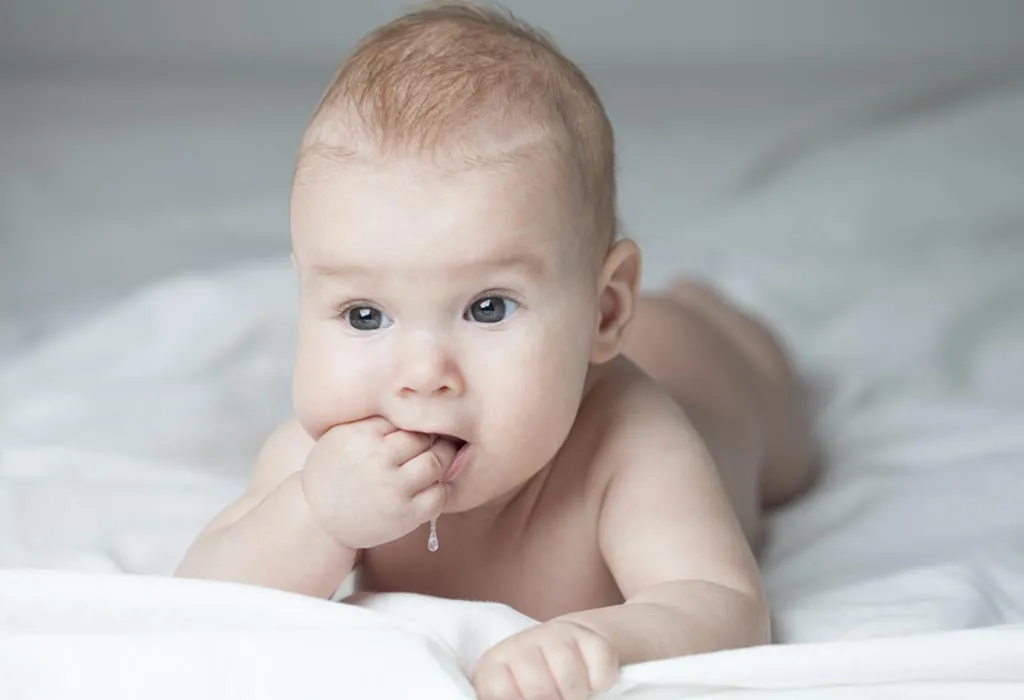
4. Mouth Rash
Another effect the drooling has is that the area around the mouth constantly stays wet. This starts irritating the soft skin in the area, resulting in a rash. This can be around the mouth, on the chin, and even the neck or chest areas, wherever the drool might have dribbled down. A lot of wiping can aggravate the rash, so it is important to use soft baby wipes to keep the area dry.
5. Increased Sucking
Your baby will try every trick he knows to alleviate the weird pressure felt on the gums. Combined with biting, most babies also have a tendency to suck on anything they can find. Just make sure that anything that the baby puts in the mouth is clean and hygienic.
6. Pulling of Ears
The ear, nose, and throat are all connected to each other. When teething starts occurring, the pain that babies feel in the gums can sometimes manifest in weird sensations in the ear. At times, pulling the ear can temporarily reduce the pain and the baby might get used to it. This results in him constantly trying to pull his ears.
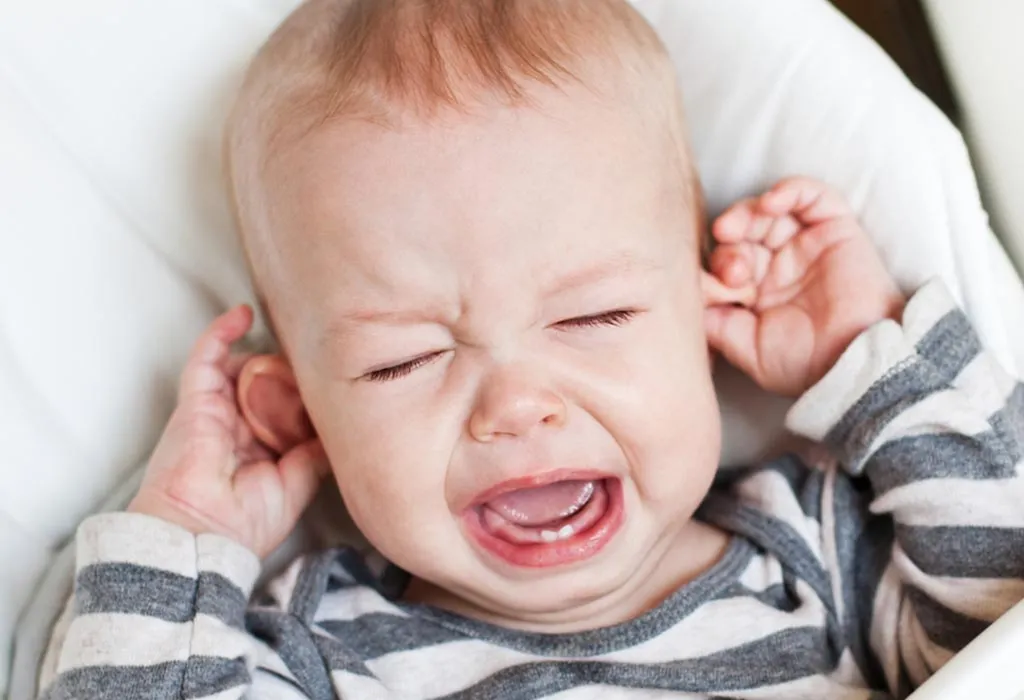
7. Lack of Sleep
All that pressure on the gums and pain in the mouth doesn’t make it easy for the baby to fall asleep. The day naps and the night sleep all end up broken and the baby will constantly be restless and unhappy that he cannot sleep.
8. Irritable and Upset
When the baby tries everything possible to reduce the pain and does not understand why it is happening in the first place, he starts getting cranky and crying for no reason whatsoever. The smallest things can get babies irritated, and they might even throw toys around. Cuddle and make him feel loved so that he calms down.
9. Fever Due to Teething
When it comes to baby teething symptoms, fever is one of those that is immediately noticed by the parents. This is nowhere close to an actual fever, and the body is only slightly warm. Use a thermometer to ensure the body temperature of the baby is within safe limits. If the temperature is more than 100.4 degrees or the fever stays for extended times, the cause could be an illness or an infection, and it is best to contact your doctor right away.
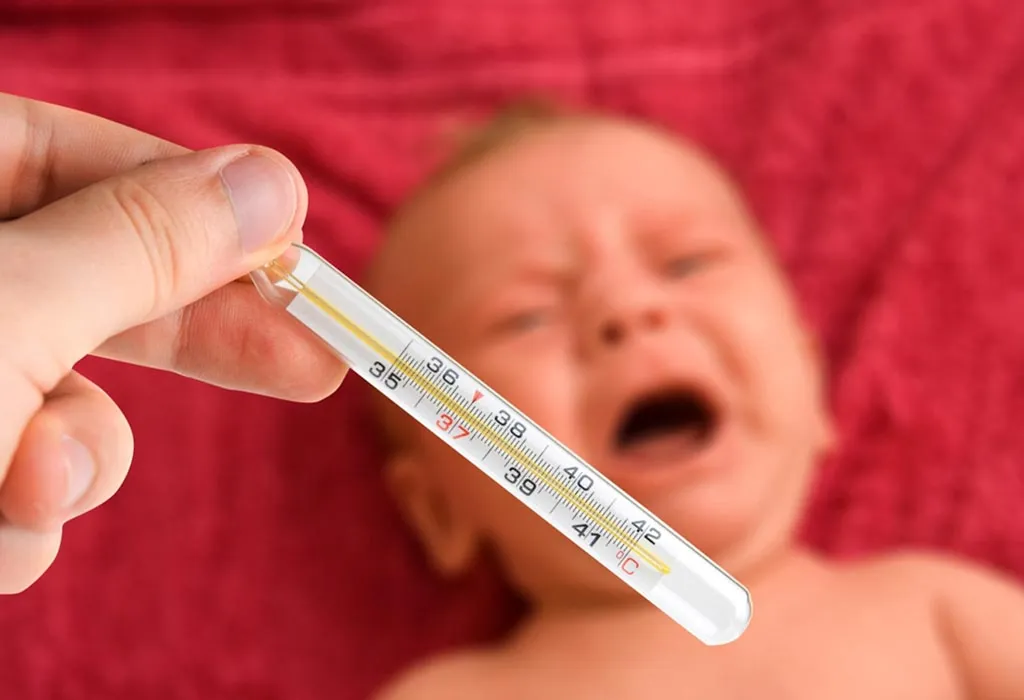
10. Sensitive and Swollen Gums
Gums take the first and foremost impact of teething, due to which they become tender and swollen. You may find swelling and redness near the gums where a tooth is about to erupt. You can relieve the sensitivity and pain by rubbing the gums with a clean muslin cotton cloth or a clean finger.
When to Call a Doctor?
It is wise to contact your doctor if you see any of the following in your little one:
- the fever has lasted for more than 24 hours
- the baby is under 3 months of age and has a body temperature of 100.4 degrees F and above
Other concerning symptoms are:
- lethargy
- lack of appetite
- unexplained rash
- vomiting
- diarrhoea
- dehydration
FAQs
1. When do babies start teething?
Babies can start teething as early as 3 months of age, but a majority start between 4 and 7 months of age (1). You may notice some newborn teething signs in your little one, like crankiness and drooling as the gums become sensitive and swollen.
2. When do babies get their first teeth?
Surprisingly, babies begin developing tooth buds even before they are born. They typically get their first teeth between 6 and 12 months of age. But that is not universal. Since every baby is unique and develops uniquely, some babies may even born with their first teeth (natal teeth), some may get teeth before their first birthday, while others may not have even one before 12 months of age. Parents are required to be patient and not panic as each baby develops at their own pace.
The first teeth that usually appear around 5 to 7 months of age are the bottom incisors (bottom front teeth), followed by the top incisors (top front teeth) around 6 to 8 months of age. You can expect all your baby’s milk teeth to have erupted by the time between 2 and 3 years of age (4).
3. Can babies get sick because of teething?
Some parents report their babies experience diarrhoea, high fever, congestion, coughing, vomiting, rashes, and even a runny nose during teething. While there’s a common belief that teething might cause these symptoms, experts at the American Academy of Pediatrics (AAP) say there’s no link (5). There is no relation between teething and diarrhoea (6). These symptoms are likely because babies between 6 and 12 months of age are more prone to illness, which coincides with the teething period. During this time, babies also tend to put objects in their mouths to soothe their gums, which exposes them to germs. Additionally, the immunity passed from the mother at birth starts to decline around 6 months, making it harder for babies’ developing immune systems to fight off infections. This may cause parents to think that teething induces diarrhoea, ear infection, or high fever.
4. How can I soothe my teething baby?
You can soothe your teething baby in multiple ways (7):
- You can give your teething baby something to chew on to relieve teething pain. Silicone or wooden teething rings are good options.
- Once your little one is able to eat solid foods, you can offer them cold foods to soothe inflamed gums.
- Gently rub clean fingers or a clean, soft gauze over the swollen gums for 20 to 30 seconds.
- Consult a paediatrician for pain-relieving medications to alleviate teething pain. Do not purchase medicines over the counter.
Various signs of baby teething at 3 months can give you an idea of what’s to come. Your baby will start discovering he has teeth now and will want to chew on and try newer things. The path towards that is riddled with a little bit of pain and a lot of crankiness. By taking small precautions and keeping your baby engaged to distract him from the pain, these days of teething will be quickly behind you.
Infographic: Baby Teething Symptoms
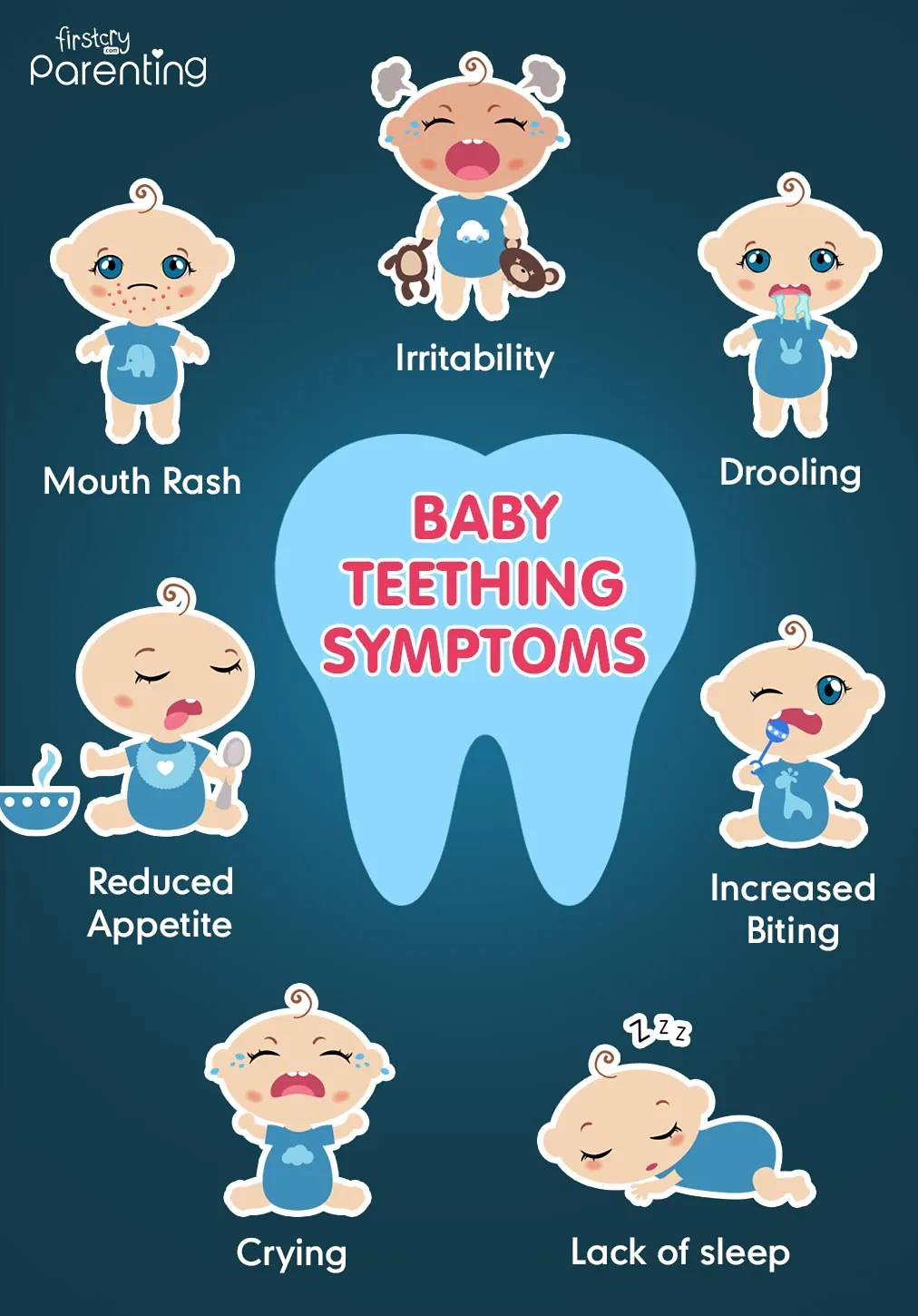
References/Resources:
1. When Does Teething Start?; American Academy of Pediatrics; https://www.healthychildren.org/English/ages-stages/baby/teething-tooth-care/Pages/Teething-4-to-7-Months.aspx
2. Baby teething symptoms; NHS; https://www.nhs.uk/conditions/baby/babys-development/teething/baby-teething-symptoms/
3. Teething; Seattle Children’s; https://www.seattlechildrens.org/conditions/a-z/teething/
4. Teething; Pregnancy Birth & Baby; https://www.pregnancybirthbaby.org.au/teething
5. Teething; American Academy of Pediatrics; https://www.healthychildren.org/English/tips-tools/symptom-checker/Pages/symptomviewer.aspx?symptom=Teething
6. DenBesten P. Is teething associated with diarrhea? West J Med.; PubMed Central; https://www.ncbi.nlm.nih.gov/pmc/articles/PMC1071026/; August 2000
7. Teething: Tips for soothing sore gums; Mayo Clinic; https://www.mayoclinic.org/healthy-lifestyle/infant-and-toddler-health/in-depth/teething/art-20046378
Also Read:
Baby Teething Biscuits
Baby Teething Remedies
Baby Teeth Order of Appearance
Baby Teething Myths & Facts Parents Should Know
Was This Article Helpful?
Parenting is a huge responsibility, for you as a caregiver, but also for us as a parenting content platform. We understand that and take our responsibility of creating credible content seriously. FirstCry Parenting articles are written and published only after extensive research using factually sound references to deliver quality content that is accurate, validated by experts, and completely reliable. To understand how we go about creating content that is credible, read our editorial policy here.







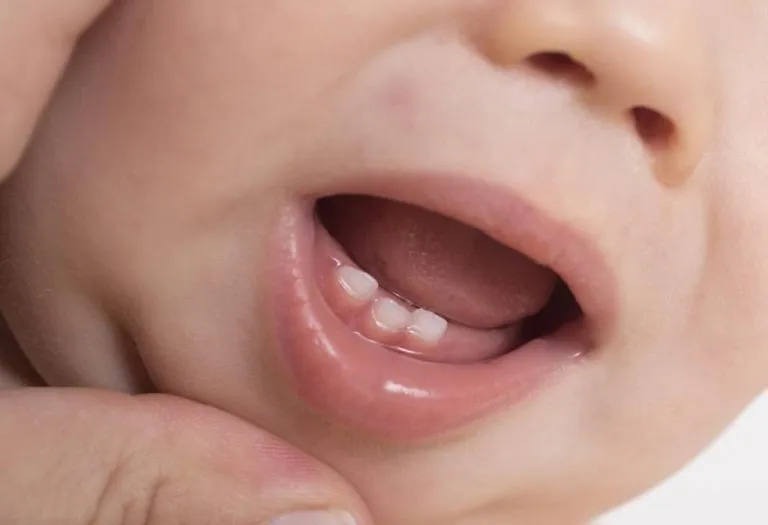
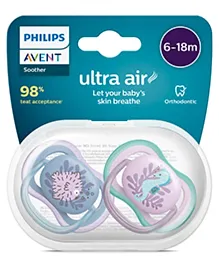
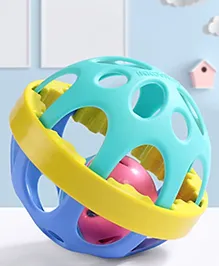
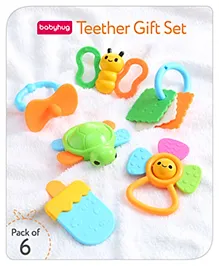

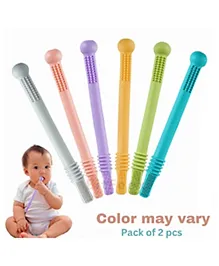

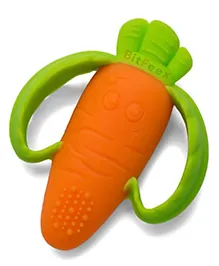

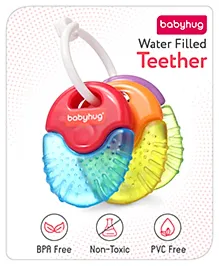
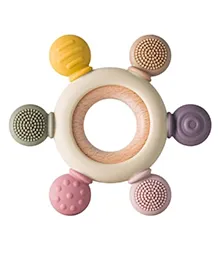
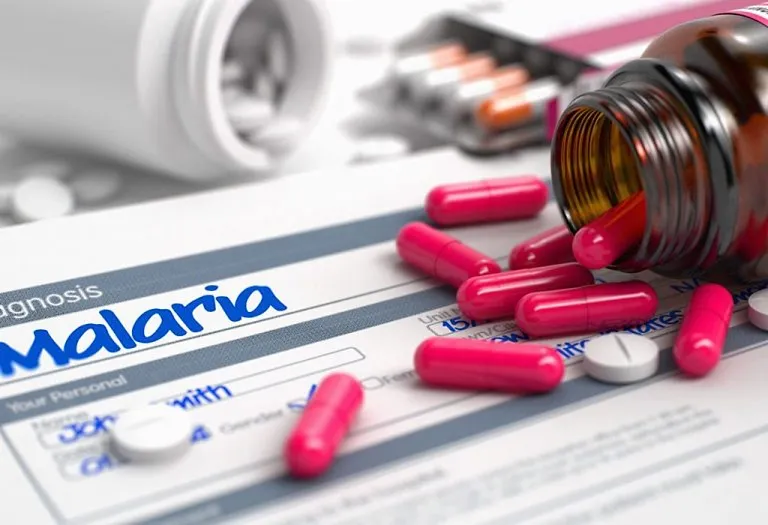
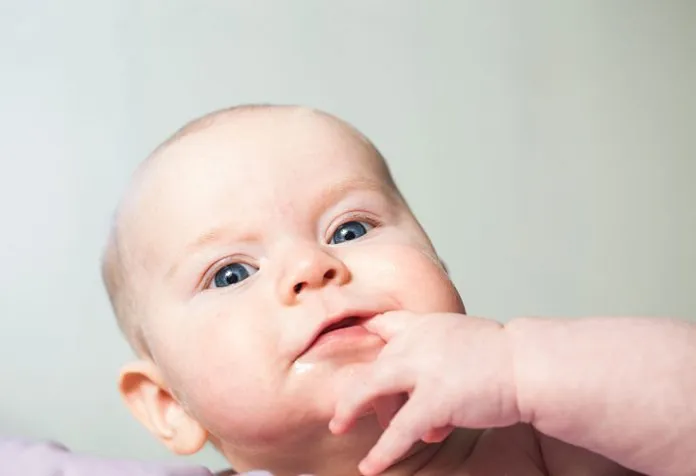

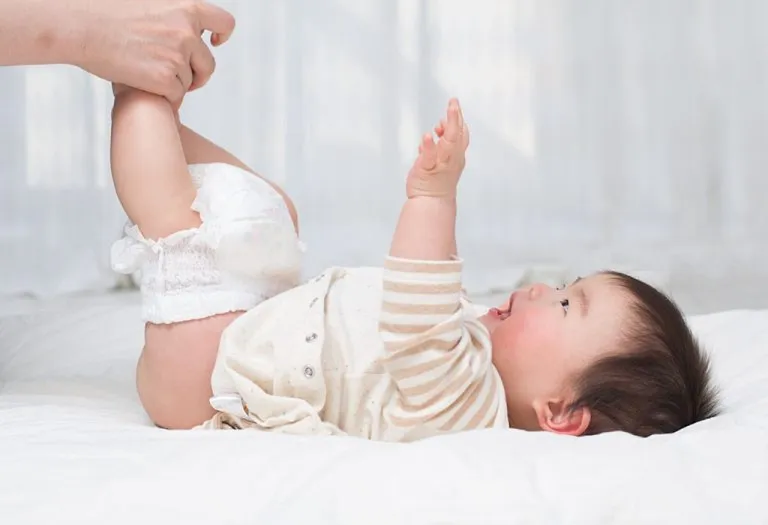
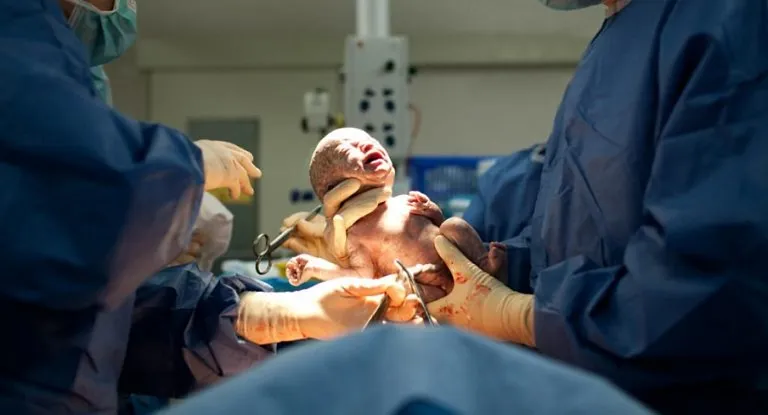


.svg)


















